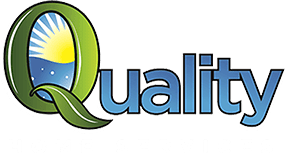The last several years have been peppered with national coverage of overwhelmed power grids and winter storms, which have highlighted the necessity of backup generators. The unpredictability of weather events and unrelated power outages have shown how generators can provide your home with power to your critical appliances. Backup generators can help keep your home safe and secure.
Are generators safe? While generators help support critical systems like alarms and security cameras, which keep your home safe. They can be dangerous if not properly installed, operated, and maintained. The Consumer Product Safety Commission compiled data from over a decade and found that more than 900 people died of carbon monoxide poisoning from generator use due to improper use.
When used responsibility, generators are a wonderful addition to any home. We’ve compiled a list of safety tips that can help you maintain and use your generator worry free.
- Outdoor Use Only: Make sure you are not exposing your home to dangerous carbon monoxide gases by using a generator inside any enclosed structure or even near one. Basements, sheds, and garages are all enclosed – so using a generator in any of these setting is dangerous. Carbon monoxide gas is invisible and odorless, so you could be exposed to it and not know. Be sure to set up your portable generator far away from any doors and windows around your home so carbon monoxide does not drift inside. If you’re getting a standby generator, make sure your installer is a trusted professional and knows the legal distance standby generators need to be safely placed.
- Maintain Your CO Alarms: You should always ensure your CO alarms are working even if not operating a generator. If you are preparing to use a generator soon, it’s the perfect time to ensure your alarms are operating properly and have fresh batteries. Safety experts suggest placing a CO alarm near every bedroom in your home.
- Operate in a Dry, Outdoor Location: Portable generators are not designed to operate on a wet surface. It’s tempting to operate your generator indoors when it’s wet outside, but this is a bad idea as we explained in the first safety tip. A wet portable generator exposes those using the device to electrocution. Standby generators are built to withstand elements. Not only can you sit back and relax while your generator kicks on automatically, but a Generac generator can sit in the sun, rain, and snow without you having to set up in bad weather.
- Practice Careful Fuel Usage: Fuel for combustion appliances like a portable generator should be stored in the proper containers away from living spaces. Each container should be labeled by the type of fuel inside. Don’t ever pour gas into a hot engine as it could ignite. Fire hazards are easy to avoid with simple and careful fuel management practices. With an Automatic Standby Generator however, you won’t need to worry about adding fuel. Those system are connected to your home’s natural gas or propane line and can run for long periods of time, even days on end.
- Keep Away from Vulnerable Parties: Your pets, children, and vulnerable adults should be kept away from generators. Parts of the generator become hot during operation, so the portable generators can be a burn hazard to little hands and pet fur. Standby generators also get hot, but often have a protective covering attached at all times.
- Look for Quality and Reliability: There are two common labels you may find on your generator. They’re the Portable Generator Manufacturers’ Association (PGMA) and the Underwriters’ Laboratories (UL.) They both have individual standards that govern labeling. The PGMA standard is the G300 and the UL standard is the 2201. They both require generators to be outfitted with an automatic shutoff feature that is enacted with there’s too much carbon monoxide around the generator. You should never operate a generator without safety features.


